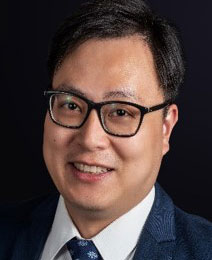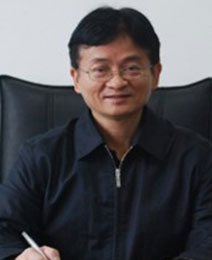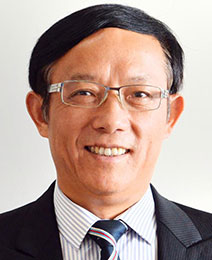Liming Lu, Yuqing Zhang, Gordon Guyatt, Chunzhi Tang, Nenggui Xu
Although reactions vary from enthusiasm to trepidation, observers worldwide have recognised China as an international force in a wide variety of domains, including clinical trial research.
China has the potential to become one of the world’s most favoured sites for performing clinical trials.[1] Since 2008,[1] although China has seen a decline in the growth rate of clinical trials, it still stands as one of the regions with the highest growth rate worldwide.[2] A number of factors make China extremely attractive as a site for large, high quality clinical trials. With 20% of the world’s population, and a pattern of morbidity and mortality that is increasingly similar to Western countries, China’s potential to recruit a sufficient number of participants to conduct large studies is enormous.
Furthermore, China has established 32 national centres for clinical medicine research, and formed a collaborative innovation network of more than 2100 medical institutions in 260 cities.[3] Another attraction is that—for the time being and foreseeable future—trials conducted in China cost half or less compared to those conducted in Europe and North America because it has larger numbers of medical staff and a lower cost base.[4]
Nevertheless, China’s clinical trial experience is still in its infancy and faces serious challenges. China’s major challenges include a slow trial registration process; lack of training in medical school, hospitals, and institutions; and a scarcity of experience in leading or participating in high quality trials. China has one of the slowest trial examination and approval processes in the world. The average time delay for an application to register a clinical trial of an innovative drug was 14 months, which is 10 times longer than the United States.[2][5] Ineffective communication, poor coordination among multiple regulatory authorities and drug inspection departments, and a lack of trained staff are in part responsible for the glacial pace of approval.
A second problem is the expertise of Chinese clinical researchers who receive inadequate professional training, are generally limited in knowledge, and have rarely led international multicentre trials. China’s medical colleges are lacking in clinical epidemiology departments, and consequently offer very few specialised courses on clinical trials. At present, China’s clinical trial personnel mainly receive on the job training by multinational companies, with a focus on meeting the company’s needs.
Overcoming these challenges will require capacity building to expedite trial registration, systematic staff training, and more international collaboration. Firstly, China needs to establish an efficient regulatory and communication system, which will facilitate full communication between review bodies, sponsors, and researchers, resulting in speedy trial registration.
Secondly, China needs to address the shortage of expert staff and resources. China should partner up with universities and research institutions that are experienced in teaching and conducting high quality trials, and jointly develop a series of trial design and research skills training courses. The expansion of professional training and the increase of relevant government budgets should be a major task for clinical research in the future.
Thirdly, China needs to increase its participation and collaboration with international multicentre trials. This would increase Chinese institutions’ practical knowledge of managing and conducting trials, further improving their leadership on high quality clinical trials and innovation in the future.

Liming Lu is an associate professor at the Clinical Research Center, South China Research Center for Acupuncture and Moxibustion, Medical College of Acu-Moxi and Rehabilitation, Guangzhou University of Chinese Medicine, Guangzhou, China.

Yuqing Zhang is an assistant professor at the Department of Health Research Methods, Evidence, and Impact, McMaster University, Ontario, Canada, and the researcher at Guang’anmen Hospital, China Academy of Chinese Medical Science, Xicheng District, Beijing, China.

Gordon Guyatt is a distinguished professor at the Department of Health Research Methods, Evidence, and Impact, McMaster University, Ontario, Canada.

Chunzhi Tang is a professor and vice director at South China Research Center for Acupuncture and Moxibustion, and the dean of Medical College of Acu-Moxi and Rehabilitation, Guangzhou University of Chinese Medicine, Guangzhou, China.

Nenggui Xu is a professor and director at South China Research Center for Acupuncture and Moxibustion, and the vice president of Guangzhou University of Chinese Medicine, Guangzhou, China.
Competing interests: None declared.
Acknowledgments: This work was supported, in part, by grants from the First-class Discipline Construction Foundation of Guangzhou University of Chinese Medicine (Chinese medicine discipline) and Young Top Talent Project of Scientific and Technological Innovation in Special Support Plan for Training High-level Talents in Guangdong (no.2017TQ04R627).
References
[1] Glickman SW, McHutchison JG, Peterson ED, et al. Ethical and scientific implications of the globalization of clinical research. N Engl J Med 2009;360:816-23
[2] U.S. National Institutes of Health. Find a study. 2018. https://clinicaltrials.gov/ct2/home
[3] Ministry of Science and Technology of the People’s Republic of China. National Centers for Clinical Medicine Research. http://www.most.gov.cn/kjbgz/201706/P020170615617731401094.pdf (in Chinese, accessed May 12, 2018)
[4] Perkovic V, Patil V, Wei L, Lv J, Petersen M, Patel A. Global randomized trials: the promise of India and China. J Bone Joint Surg Am 2012;94 Suppl 1:92-6.
[5] Zhou Q, Chen XY, Yang ZM, Wu YL. The changing landscape of clinical trial and approval processes in China. Nat Rev Clin Oncol 2017;14:577-83.
